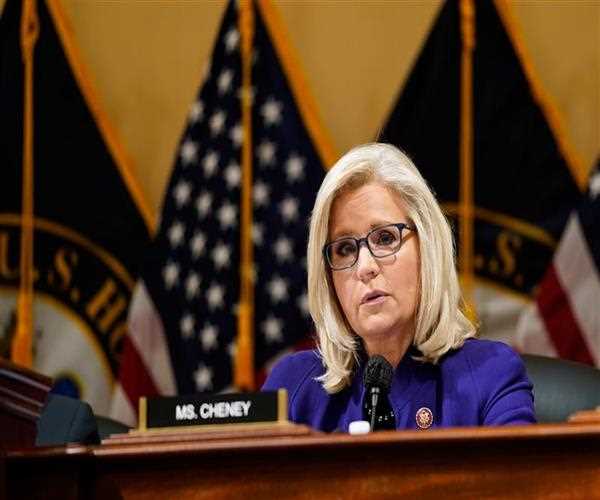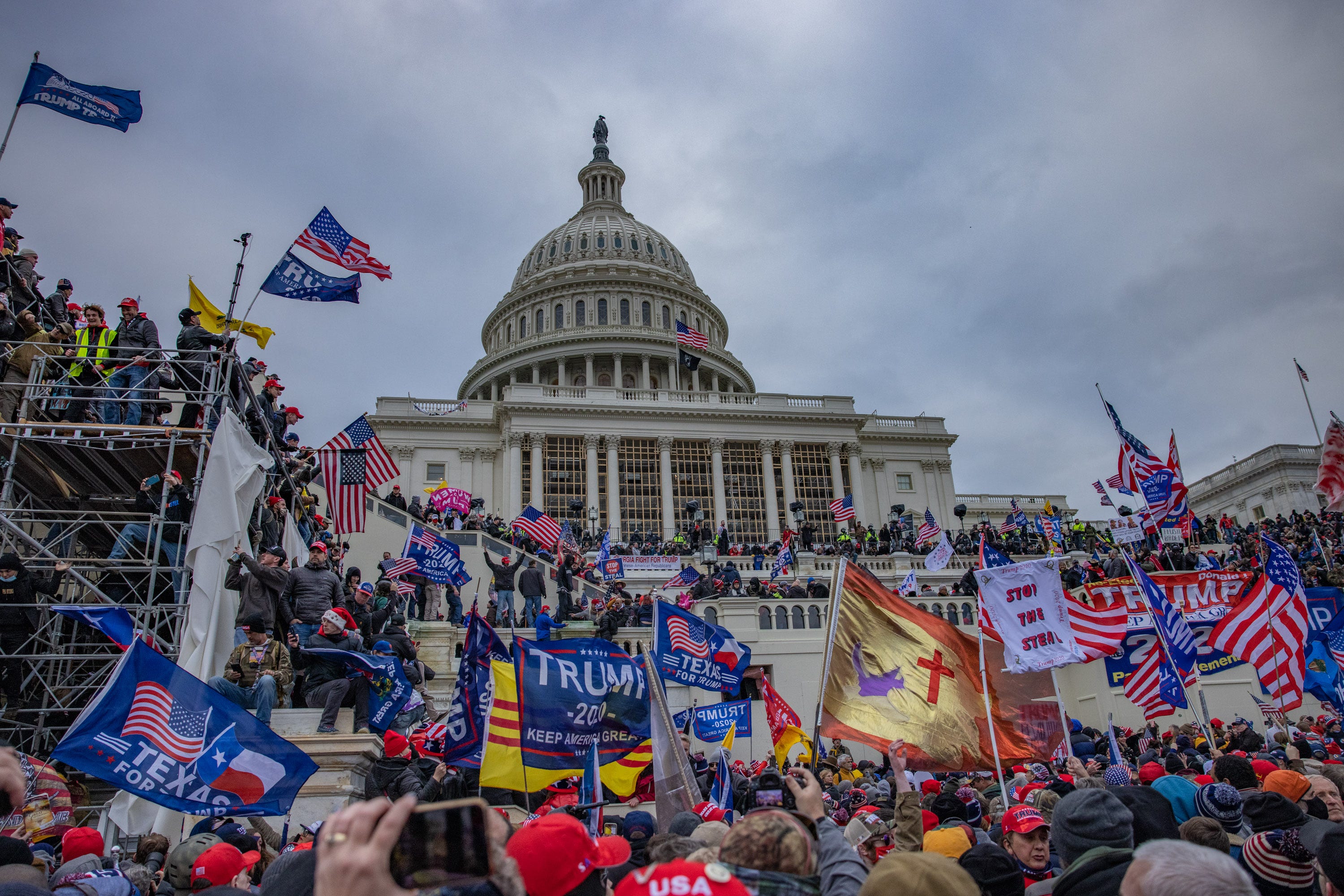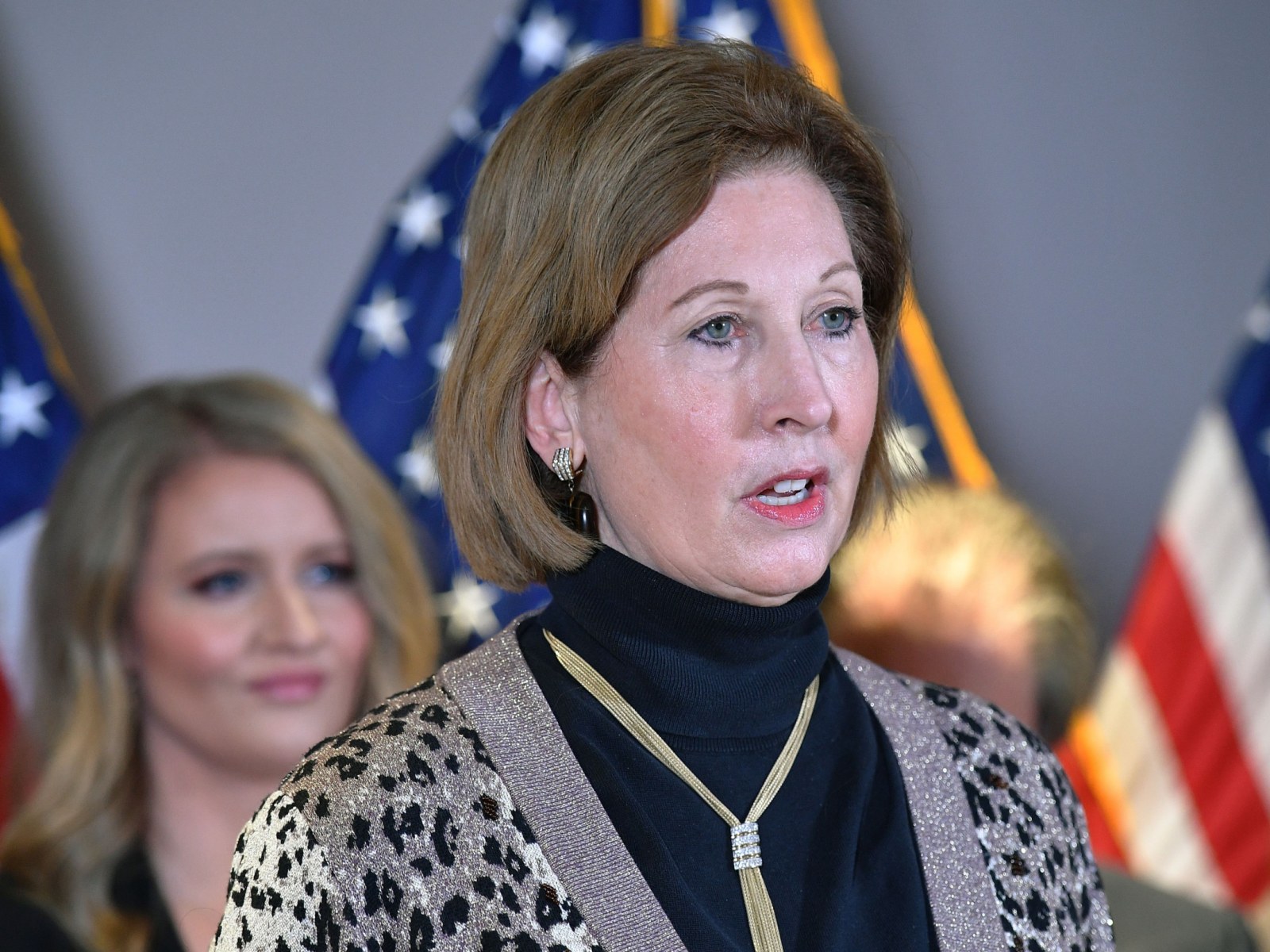
04-Jul-2022 , Updated on 7/4/2022 7:56:21 AM
Cheney says January 6 committee could make multiple criminal referrals
The January 6 committee faces a will they or won't they moment. The former White House Deputy Chief of Staff, Tony Ornato, is at the centre of that question. Ornato is now attacking the credibility of some of what Cassidy Hutchinson testified to earlier this week. Specifically, Ornato denies telling Hutchinson that Donald Trump had lunch on the steering wheel inside the presidential SUV after being told on January 6 that he could not go to the capital and could not join the rioters. It is now weighing whether to bring him back or not, before the panel under oath and in public.
Do they want to hash this out in public, or do they see that as too risky?
I think there are a lot of aspects of this investigation that fall under that banner. But with Ornato specifically, it's interesting just what level the committee is interested in talking to him about and if they want to ask him more questions beyond just this individual freckle that may or may not have occurred inside a presidential limo on January 6.
Committee members have said that Ornado's version of what happened on that day differs from what Hutchinson said, and they believe Hutchinson over Ornato at this point. But the Secret Service has said that they are willing to let both of these individuals come before the committee again and testify under oath.
Now, if they do that, that opens them up to answering questions about a whole host of things, not just this specific incident as well. And it's important to point out that the committee believes the most important part of that testimony is not whether or not Donald Trump lunged at that steering wheel or even potentially attacked as a member of the Secret Service. It's that he wanted to go to the Capitol and he was angry about it. And there was no one disputing that fact up until this point. Now, as to whether or not this all plays out in public. If it does, it may not be for some time.

It's clear the committee wants to have this conversation behind closed doors, at least to start, and then they'll see if it takes the stage as another public testimony. At this point, the committee has not really brought forward individuals or witnesses that could be a little bit conflictual in an open setting or who may fall under that category.
Regardless, the overarching thing people need to remind themselves of is that this investigation is still very much in its middle stages here. We're a long way away from things being wrapped up.
They've had witnesses from Trump's world presenting a damning picture of Trump. One of the challenges, if you publicly bring in someone who might defend Trump somewhat or be given a somewhat conflicting account, is does that take you off your message if you're on the committee, or does it maybe help you prove your credibility that we're willing to have people come in and go? Clearly, committee members do not think Mr Ornato is a truth-teller.
Well, the committee clearly wants to bring Ornato in again behind closed doors. We know from sources around the committee that Ornato has already been in twice with them, and there were some questions about his testimony even then when he came in in the spring.
And that is the risk now if he comes in and if there were some way in which he would come and testify publicly that he had been very closely choreographed affairs, all of these hearings, other than the Cassie Hutchinson hearing, they've been making more use of recorded testimony and documents in these hearings than they have the live witnesses, partially because that is something that you control. You can't control a live witness quite as much.
Does the committee help or hurt its case if it brings in someone who might push back somewhat behind closed doors? One thing, but what if they do it publicly?
Well, it's really a strategic decision by the committee in terms of what they're trying to achieve to establish their historical accuracy record. It's not quite a legal proceeding. It's legislative proceedings, an oversight proceeding, and investigative congressional proceedings.

So they want to find out what the truth is. I found Cassidy Hutchinson's story very compelling. I found her a very credible witness in her public testimony. If now they think there is a dispute, then I think it would make sense for the committee to bring a contradictory witness back in for testimony.
I don't think it necessarily has to be in public. It just needs to be under oath. It could be recorded so that they can have a good record of it. It could also be transcribed. He might behave differently, actually, and be perhaps more forthcoming, but not on a big public stage.
So I think there is an argument to be made to bring him back, not to an informal meeting, but definitely under oath in either a video recorded or a transcribed session. Maybe what's most important to the committee, in the sense that the key point that's not in dispute is that Donald Trump wanted to go, he wanted to go to the capital.
Trump's critics relished the idea that the president was unhinged and he had this rage, and that's the point that's in dispute.
How angry was he? Did he actually reach out to a Secret Service agent? How important is that to the committee?
It's about this anecdote itself. The only thing that's in dispute is the legitimacy of this specific instance. What is not in dispute is the overall picture that the witness painted. We have not seen that really refuted, even by the folks who she named.

There is a picture that is very clear that says that Donald Trump and those around him knew the risk and the violent risk of the January 6 mob, and they not only did not care about those risks but encouraged them.
And that's the picture that we have seen consistent throughout these hearings. I think it's going to be interesting to see what they do on this disputed point because we know the kind of Trump world has a history of latching onto these instances and trying to blow up a full scenario.
And we know that this is a community that doesn't really have a history of credibility. If we were going to put this person in the story, we would have to know that they have a history of lying. And so, this is a choice that the committee has to make. But it is also about what, as you say, is their priority in terms of the narrative.
When it comes to the testimony and what the committee could do next. They're saying that they actually do find Cassidy Hutchinson, by the way, to be a really credible witness. They're all speaking to her character. They don't have any reason to disbelieve her. But one thing that they are saying is that it might help the committee if they could get another corroborating witness who could come in and talk about some of these things.
So to the extent that they could bring in anyone else who could corroborate the stories that she told, their sense of that is that would probably help the committee. And by the way, they're again not disputing the actual accounts of those things that happened and somebody with the title White House Counsel clearly would be a pretty big name to get.
From a legal perspective, understand this Justice Department ploy in a separate investigation? They want to know who's paying the lawyer fees of some of these Oath Keepers who are charged related to the insurrection. They specifically want to know if it's the former Trump attorney Sydney Powell who was part of the Trump Big Lie election. Why is that significant and is there a conflict of interest there?

Well, Sydney Powell was integrally involved in the effort to overturn the election from the perspective of the so-called legal strategy that the former President had. So she was an integral participant in the Justice Department. I can imagine a scenario where they have an investigative interest in her.
Now, if she is facilitating the financing of the legal fees for some of the current defendants, then that brings into question the Justice Department's potential pleas and potential cooperative relationships with those defendants.
I mean, you really have to step back and think about the fact that the Oath Keepers have been charged with seditious conspiracy, which is the most serious charge that we have seen in the January 6 investigation.
It involves the violent part of trying to prevent the certification of the election. So there certainly is a conflict between people who were involved in it facilitating the legal fees. And so that would be something that the Justice Department would want to know.

Student
Hello, I am a mechanical engineering student from Delhi Technological University. I've written articles, journals, and social media postings for "Panache"—The Fashion Society of DTU, MindStick Software Private Limited, Zayuche LLP, and OtakuKart. I learned more about the subject through researching it, which has aided my growth.
Comments
Join Our Newsletter
Subscribe to our newsletter to receive emails about new views posts, releases and updates.
Copyright 2010 - 2026 MindStick Software Pvt. Ltd. All Rights Reserved Privacy Policy | Terms & Conditions | Cookie Policy